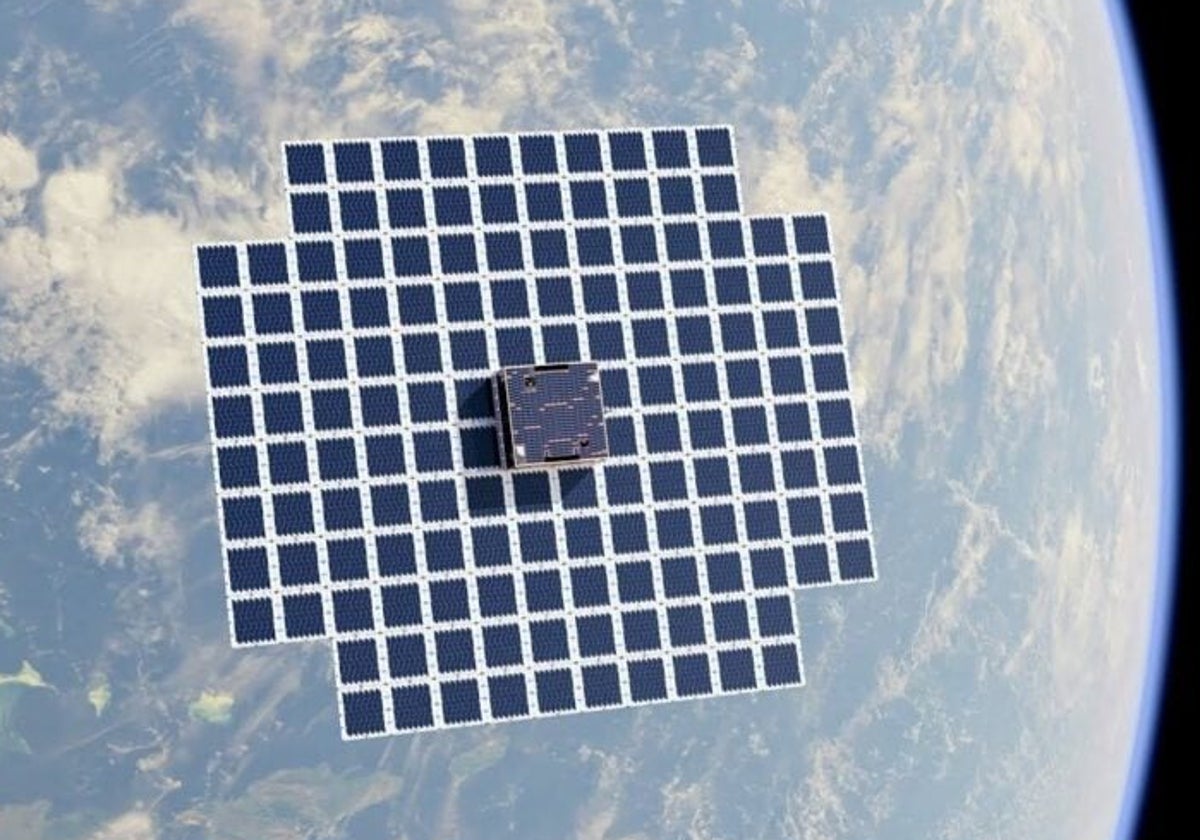First European centre to develop connectivity between mobiles and satellites to open in Malaga
The Vodafone and Malaga University project will drive the technology needed for phones to have smooth coverage across the globe
The new million-dollar R&D project that Vodafone will launch in Malaga city, in collaboration with the University of Malaga (UMA), aims to ensure that phones will never lose broadband coverage, regardless of their location on Earth. The project announcement comes two weeks after Vodafone's innovation centre in Malaga was named winner of the PERTE Chip II. Development of the initiative will start this summer, with the Vodafone Innovation hub in Malaga (which already employs 1,000 people) as its headquarters.
The Spanish Space Agency has awarded an initial grant. AST SpaceMobile (which is building the first global cellular broadband network in space) and the University of Malaga (UMA) will be Vodafone's main partners in this venture, along with other technology companies and external researchers invited to participate, fostering "a new European ecosystem integrating satellite and terrestrial connectivity".
With this initiative, Vodafone reinforces its "goal of offering universal mobile coverage to its 340 million customers in 15 countries, as well as to its network partners in 45 other markets". Vodafone aims to introduce direct satellite connectivity to smartphones in Europe from the end of 2025 and 2026.
2.6 million grant
In December 2024, Vodafone Intelligent Solutions Spain, AST & Science Iberia and Software Radio Systems Spain were awarded 2.6 million euros in public funding from the Centre for the Development of Industrial Technology (CDTI) under the Space Technology Programme for the project 'Saturn - Satellite constellations for direct to mobile communications, supported by intelligent network management, orchestration and optimisation'. The total budget of the submitted project is almost 5.5 million.
"As society becomes more digitised, it is more urgent to close coverage gaps. Vodafone, together with AST SpaceMobile and the University of Malaga, will create partnerships with like-minded organisations to build harmonious networks between space and Earth, driving universal digital connectivity in Europe," said Alberto Ripepi, chief network officer of Vodafone Group.
Chris Ivory, chief commercial officer of AST SpaceMobile, added: "We are excited to collaborate with Vodafone and the University of Malaga on this pioneering project. This partnership will advance our shared vision of providing space-based cellular broadband connectivity directly to users' smartphones, leveraging our innovative satellite technology and the largest commercial communications antennas ever deployed in low orbit."
Rafael Godoy, dean of the School of Telecommunications Engineering at the UMA, considers this collaboration "a testimony to the strength of the technological ecosystem in Malaga, to which the University of Malaga continues to make a decisive contribution with its researchers, students and graduates".
Objectives of the new hub
The centre will focus on the design, testing and validation of new open source hardware and software solutions, as well as the development of processing chips that can operate in both space and terrestrial networks.
It will also feature a space-to-ground gateway, similar to the one used in Vodafone's historic video call from space on 27 January, which will allow its partners and other operators to test and validate their own services connected to AST SpaceMobile's BlueBird satellites before launching them commercially.
By offering these capabilities to operators and technology providers, Vodafone aims to foster collaboration across the industry, accelerate innovation and achieve universal connectivity faster and more efficiently. In the longer term, the hub will expand to become a centre for operations and service management for third parties across Europe.
Vodafone will leverage its advanced development work on multi-vendor open radio access network (RAN) equipment, software and compatible silicon chip designs at its satellite hub. Open RAN technology shares features with the new direct-to-device satellites, which essentially act as radio antennas in space.
Leveraging the Open RAN ecosystem
Vodafone has been at the forefront of building a more robust vendor ecosystem through Open RAN, including the integration of hardware and software from multiple vendors and, more recently, new dedicated silicon architectures. It is now applying the same network architecture and processes to the integration of satellite and terrestrial networks, with the goal of operating both with the same commercial off-the-shelf (COTS) servers, as in Open RAN.
In recognition of the need to strengthen supply chain resilience and foster innovation through the adoption of Open RAN, Vodafone has recently received approximately 14 million euros in additional funding for its centre in Malaga. The support comes from Spain's Ministry of Industry, as part of an associated project under the European Commission's Important Projects of Common European Interest (IPCEI) programme.

